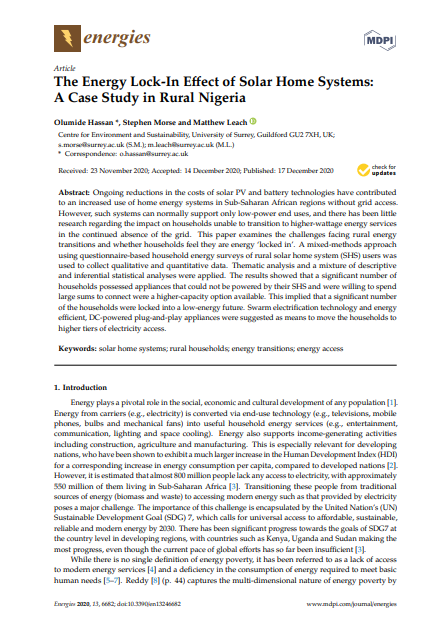Publication date: 17 December 2020
Author: MDPI
Description: Ongoing reductions in the costs of solar PV and battery technologies have contributed to an increased use of home energy systems in Sub-Saharan African regions without grid access. However, such systems can normally support only low-power end uses, and there has been little research regarding the impact on households unable to transition to higher-wattage energy services in the continued absence of the grid. This paper examines the challenges facing rural energy transitions and whether households feel they are energy ‘locked in’. A mixed-methods approach using questionnaire-based household energy surveys of rural solar home system (SHS) users was used to collect qualitative and quantitative data. Thematic analysis and a mixture of descriptive and inferential statistical analyses were applied. The results showed that a significant number of households possessed appliances that could not be powered by their SHS and were willing to spend large sums to connect were a higher-capacity option available. This implied that a significant number of the households were locked into a low-energy future. Swarm electrification technology and energy efficient, DC-powered plug-and-play appliances were suggested as means to move the households to higher tiers of electricity access.






















